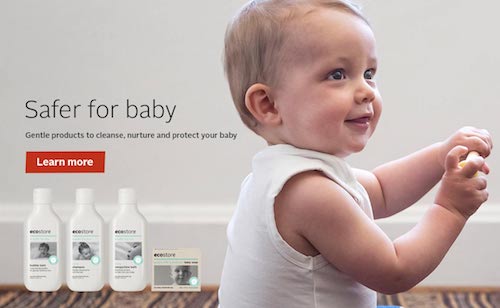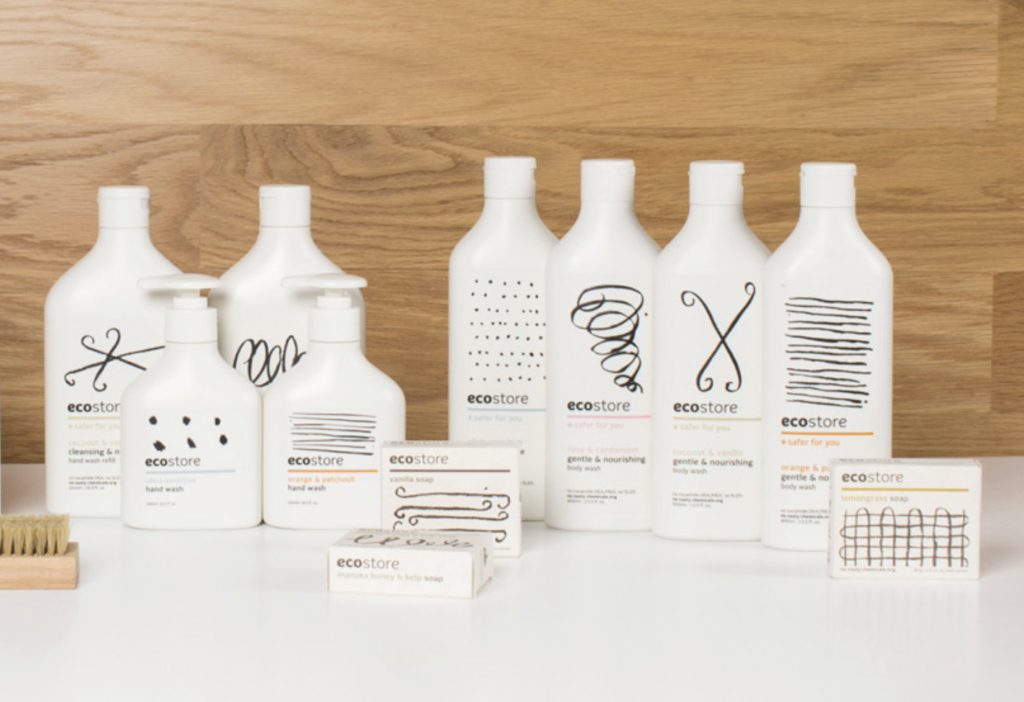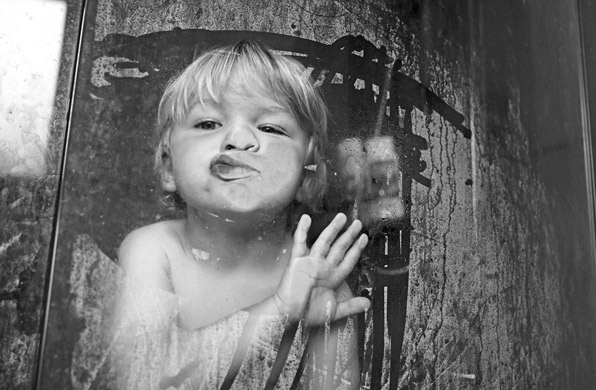Dave Martin is the co-director and co-founder of Martin Builders, Small Giants Developments, and many other businesses, and has a passion for high quality, responsible and sustainable design and construction.
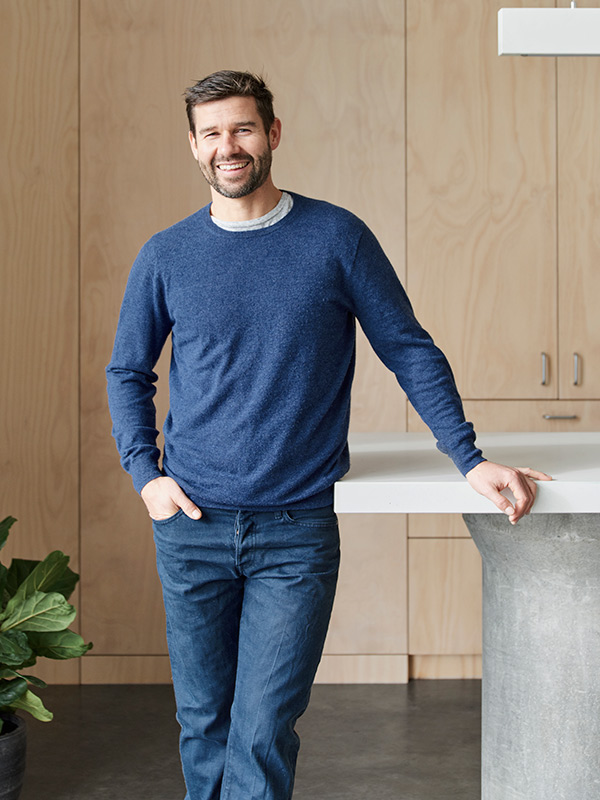
Tell us about your background, how the business started and some of the most memorable projects you’ve worked on.
Martin Builders was founded in 2007 and grew from working locally in the Bass Coast and in Melbourne, and seeing that there was a gap int the market for a company focussed on really high quality craftspersonship and design. Then as the company evolved, we realised that we needed to also be focussing more and more on sustainability, not only sustainability in design, but also in our construction processes. Our most memorable project for Martin Builders is The Croft House, which is a stunning home designed by Sydney architect James Stockwell to mimic the sweeping lines of a sand dune. The Croft House featured on Grand Designs Australia at the time of construction, and in 2017 Kevin McLeod announced it as his top Grand Designs Australia home of all time.
What are the different services offered by the business today?
Martin Builders completes residential and commercial construction projects across Victoria, Australia. We have always emphasised true craftspersonship and take pride in our work. Today we continue to work on how we can make our build sites healthier for our team and the planet, which in turn creates buildings that are healthier to live in for the clients.
How do Martin Builders, The Sociable Weaver and Small Giants Developments work together to create a future impact bigger than they could on their own?
With the three brands we’re trying to reshape how we design and build Australian homes and buildings. With Martin Builders, we’re using on-site practices, such as separated bins to reduce waste to landfill, an emphasis on natural and no-VOC internal finishes for healthy living spaces, and much more—all simple things that any construction company can take on to make any build site tread lighter on this planet.
The Sociable Weaver and Small Giants Developments take these practices further in the single-dwelling and multi-residential industry respectively. These two brands emphasise designing and creating spaces that connect you to nature, community and to self. For The Sociable Weaver we’ve designed a range of homes that are beautiful, functional, affordable and sustainable—we’re showing that sustainable homes can still be modern and stylish. You don’t have to sacrifice comfort or personal taste to create the home of your dreams, that still has a low impact on nature. Our latest project under Small Giants Developments, The Commons Hobart, is a carbon positive apartment building in Hobart, Tasmania—it will be the first of its kind in Australia and we can’t wait for it to be finished!
Finally, we also have a fourth brand, The Nest Workshop, which is our joinery and cabinetry company—here we are emphasising the value of true craftspersonship, creating pieces that will last generations.
By working across all elements of the design and construction industry, we’re showing that these changes can be made at every level, on every project, by every single company. It’s the only way forward for homes that don’t harm ourselves, or the planet.
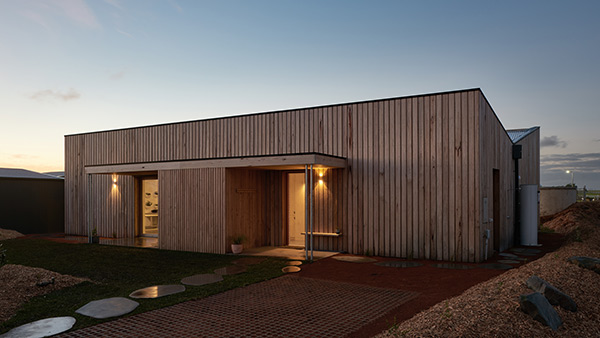
Martin Builders’ 10 star home
Where does your personal passion for sustainable building and design come from?
I think it all stems back to a passion for nature which was really instilled in me by my parents. Growing up we were always going bushwalking, cross country skiing, and surfing, so that embedded a real connection to nature and environment in myself. Then as I got older and worked in the building industry I start to realise how important it is for us all to be protecting this planet, and how we are such a tiny piece of the ecological puzzle, yet we can have such a huge impact, either positive or negative.
How do you measure business success?
For our businesses, success doesn’t just come down to profits. Money is the tool for us to create the positive change we want to see in the world—we make money so that we continue to do more projects, hire more talented and inspiring staff, and roll out more sustainability initiatives, like our 300 Trees and 300 Kilogram Initiatives. Success for us is also about supporting our internal and external community; ensuring our team are all happy and healthy, educating our staff, suppliers, partners and clients on sustainable living, and giving back to the planet. This year we will be applying for B-Corp accreditation to further demonstrate this commitment to more than just profits.
How do you share knowledge on sustainability and low carbon living and why is this knowledge sharing so important?
Much of the time, sharing knowledge on how to live and work sustainably on this planet is really just leading by example. The more sustainable practises we integrate into our daily work processes, the more they just become the way we do things, and then hopefully that rubs off on everyone else we work with, from our other trades, suppliers, and clients. We’re showing it’s not hard to do things in a responsible manner. And it’s also important to acknowledge that it’s a journey—we’re all on a journey to be more sustainable, so if you’re further behind us on the journey, what can we teach you? Or if you’re further ahead, what can we ourselves learn from you. Sharing knowledge is how we change not only this industry, but the entire world.
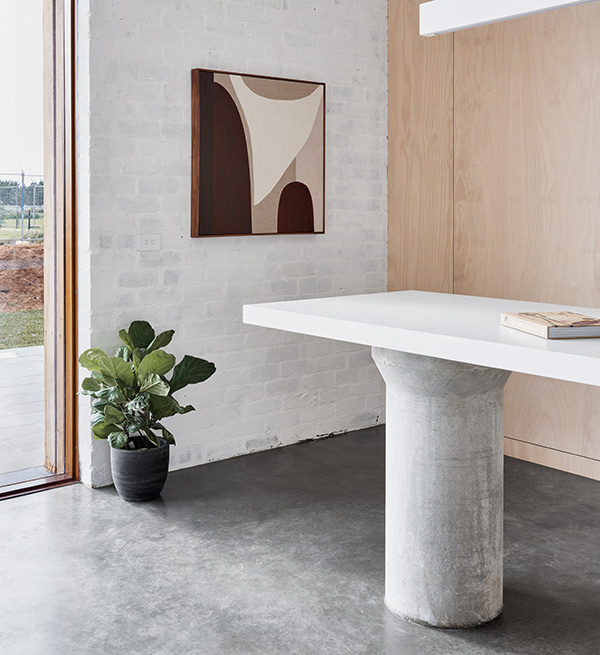
The kitchen in Martin Builders’ 10 star home
How do you help suppliers achieve business success alongside your own business?
Without our suppliers, we can’t operate as a business, so it’s important for us to build genuine and lasting relationships with all of our suppliers. The old school way of approaching business is to try and always get ‘more’ out of a business transaction than the other party, but this isn’t how we should be operating in this world—business transactions and partnerships should always be mutually beneficial, and there should be trust and appreciation of the other person’s skills and expertise. We consider our suppliers as an important part of our community, and we emphasise working with local suppliers and building a relationship over time to help support their business, and ours.
When did you establish the Sustainability Apprenticeship and how does that initiative work?
The Sustainability Apprenticeship was established 12 months ago and it’s about supporting our staff to develop both professionally and personally. As an employer we have an opportunity to provide support and life skills to our staff, not just training and trade skills. Not only that, but we believe it is our responsibility to ensure our team has the skills to be their best at home and at work, whether that’s through communication skills, or healthy living guidance.
How do you build life skills and work/life balance into the equation for staff?
We know that life outside of work, and life inside of work, are interconnected, and one can’t flow if there are problems in the other. If we’re creating stressful situations at work, then this is going to have a negative effect at home, and vice versa. Our team is our family and we want them to each to feel respected, trusted, and valued as a member of this family.
Sometimes it can be hard for everyone to feel connected when we’re all working from different offices and build sites, so this year we’re focussing on bringing the entire family from across the four brands together more often. This will include whole team days where we all come together to shape our vision for our brands and decide how we can make more positive impact, and also impact days where we gather together with clients and partners to give back to nature, like our recent beach clean up day where we removed over 100 kg of coastal pollution from the Victorian coastline.
In terms of life skills, we also want to give our team more access to the incredible courses and events run by The School Of Life (another company in the Small Giants family).

